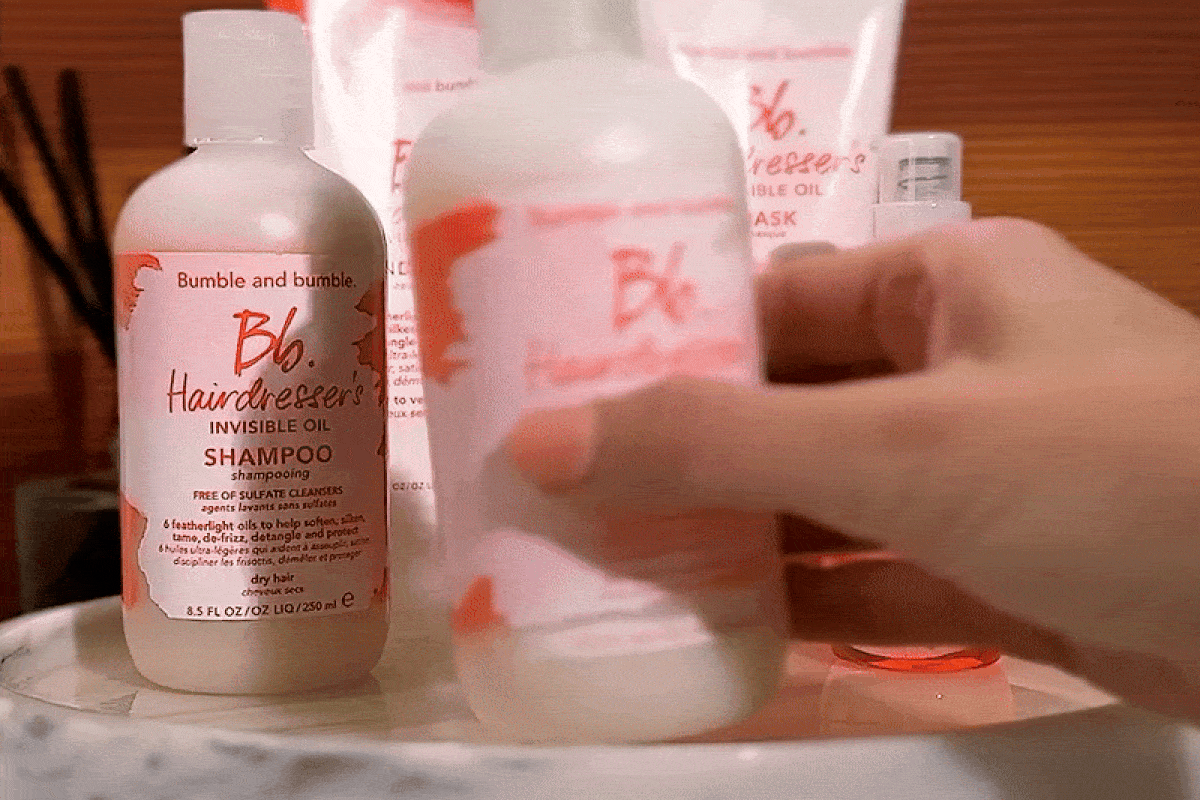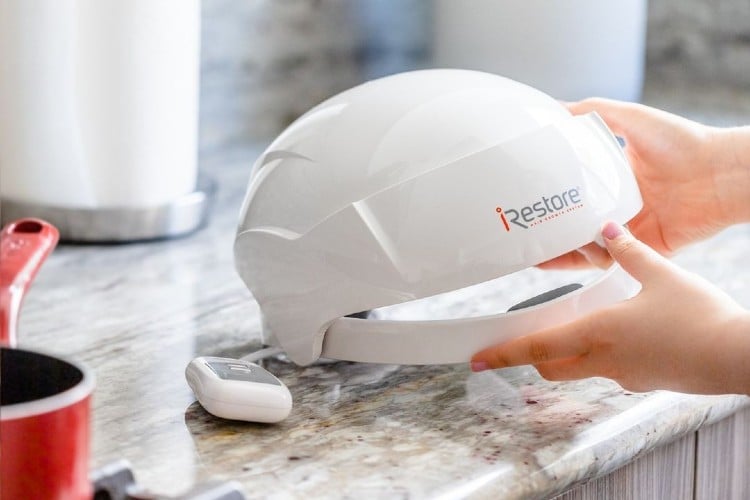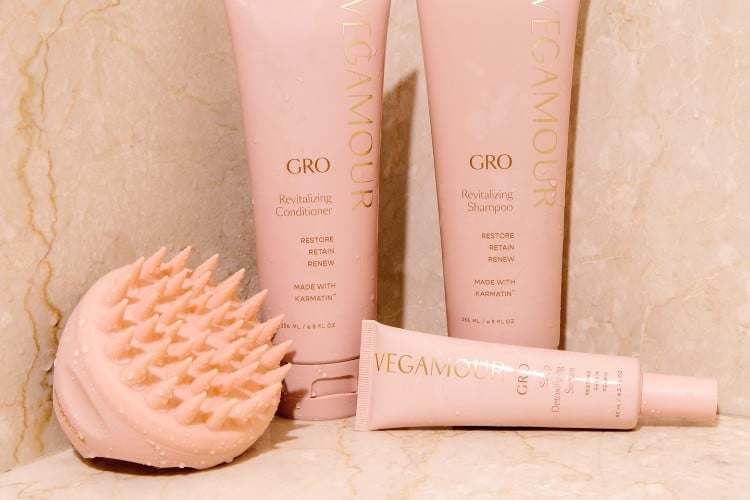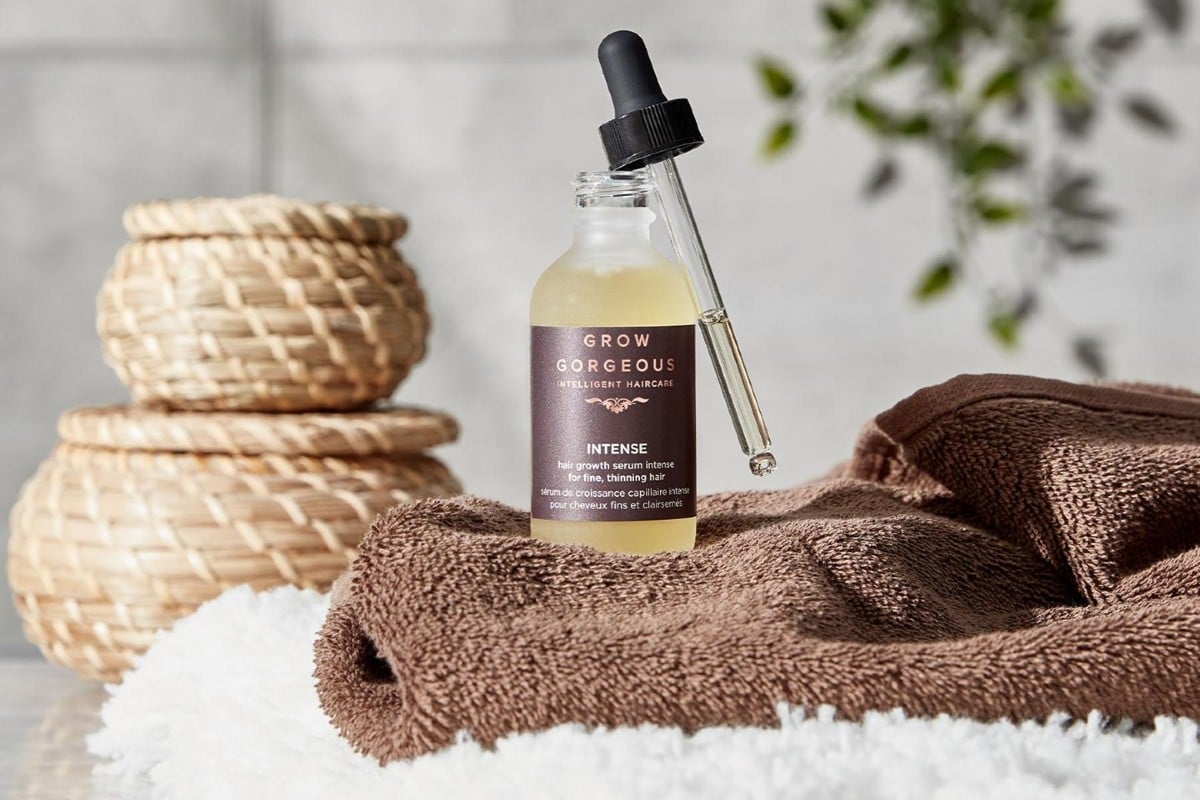Everyone thinks about their hair as their crown. Most women do, at least. And since full, dense, and voluminous hair is the most sought-after trait for all of us, we’re ready to buy dozens of products and supplements that promise to get our crown back to its peak condition — even if we’re not aware of what they contain or if they’ve been dependably proven to enhance hair quality. One of these notorious treatments is biotin, which is often promoted to stimulate hair growth and reduce shedding. Although there’s not much research that proves its benefits in improving hair health, a recent survey shows that over 40% of physicians prescribe biotin for various conditions.[1] While researchers sound the alarm about its effectiveness, physicians have no problems recommending it.
So which side should you be on? Does using biotin products have any meaningful effect on hair growth? Should you use it orally or topically? If you’ve pondered these questions, you are in the right place. Here’s everything you need to know about the use of biotin for hair growth.
What is biotin?
Biotin, also known as vitamin B7 or vitamin H, is a water-soluble vitamin that the body needs to fulfill a wide range of metabolic processes. Thanks to it, our body can convert nutrients into energy and repair damaged tissue.[2] Biotin is also required for synthesizing fatty acids and amino acids and works to build up keratin, a protein that promotes thicker and stronger hair.[3] Since our body doesn’t naturally produce biotin, we need to get it from foods or supplements. Foods that contain the most biotin include eggs, fish, meat, seeds, nuts, and certain vegetables (such as sweet potatoes).[4]
The role of biotin in hair health
Because biotin stimulates keratin, it’s a necessary vitamin to maintain healthy hair. However, it turns out biotin only impacts the quality of hair when the body has a deficiency of it. While it’s well established that a deficiency of this vitamin can result in hair loss and other health conditions (dermatitis, vision issues, and even mild depression), no study shows that supplying the body with more biotin in the absence of deficiency can promote hair growth or enhance the hair in any way.[3][5]
A 2016 study aimed to determine the significance of biotin deficiency in women complaining of hair loss. Of 541 volunteers (aged between 9 – 92 years), 38% of them had a deficiency in vitamin B7. Similarly, another study proved that supplements with biotin could improve hair growth in people with established biotin deficiency. The same study also pointed out that the efficacy of supplementation with biotin in normal, healthy people hasn’t been proven in not a single clinical trial.[3]
Luckily, biotin deficiencies are very rare. That’s because many foods people usually consume daily contain large amounts of this vitamin. According to the Food and Nutrition Board of the Institute of Medicine, the recommended dose of biotin is 30 mg/day for adults, and the estimated biotin intake is 35-70 mg/day with a Western diet, suggesting that supplementation is likely unnecessary for most individuals.[6]
In general, pregnant women and people who drink high quantities of alcohol have more chances of developing a deficiency of biotin. Also, if you eat raw eggs regularly, you are likely to face a biotin deficiency. The reason is that the protein avidin, found in raw egg whites, can bind to biotin and prevent your body from absorbing it.
Does topical use of biotin work?
Over the past decade, biotin’s popularity took a rampage. Have a peek at the data from Google Trends. Today, twice as many people are searching for biotin as in 2004. And the market is flooded with shampoos and conditioners formulated with it. But do they work? The fact that biotin increases keratin production may suggest that topical products can increase hair thickness and fullness, but it’s hard to say if they’d have any effect on hair growth since there’s no evidence to support it. Besides, biotin is unlikely to penetrate the scalp and affect the follicles, so the likelihood to have any effects when applied topically is unfavorable.
While there’s nothing wrong with adding biotin products to your haircare routine, you shouldn’t expect miraculous results.
To end: does biotin promote hair growth or treat hair loss?
So what’s the takeaway? Biotin can stimulate hair growth in people suffering from alopecia, but only if the condition has been caused by a biotin deficiency. There’s no solid evidence to show that biotin supplements can promote hair growth or treat either androgenic alopecia or alopecia areata (the two most common forms of hair loss) in non-deficient people. Also, topical application of biotin is unlikely to provide benefits, so you must take your dose of biotin from foods or supplements.
Footnotes
Women’s Concepts uses reliable sources, including dermatologists’ insights, clinical trials, and scientific journals, to find accurate information and support all the facts shared in our articles. All statements and claims have clear and legit references. Read our editorial policy to learn more about our sources of information, our process of researching and fact-checking the content, and how our team strives to keep all articles updated, completed, and trustworthy.
- Waqas B, Wu A, Yim E, Lipner SR. A survey-based study of physician practices regarding biotin supplementation. J Dermatolog Treat. 2022 Feb;33(1):573-574. doi: 10.1080/09546634.2020.1770178. Epub 2020 May 25. PMID: 32419559.
- Soleymani T, Lo Sicco K, Shapiro J. The Infatuation With Biotin Supplementation: Is There Truth Behind Its Rising Popularity? A Comparative Analysis of Clinical Efficacy versus Social Popularity. J Drugs Dermatol. 2017 May 1;16(5):496-500. PMID: 28628687.
- Patel DP, Swink SM, Castelo-Soccio L. A Review of the Use of Biotin for Hair Loss. Skin Appendage Disord. 2017 Aug;3(3):166-169. doi: 10.1159/000462981. Epub 2017 Apr 27. PMID: 28879195; PMCID: PMC5582478.
- National Institutes of Health, Office of Dietary Supplements, Biotin, https://ods.od.nih.gov/factsheets/Biotin-HealthProfessional/
- Saleem F, Soos MP. Biotin Deficiency. [Updated 2022 Mar 2]. In: StatPearls [Internet]. Treasure Island (FL): StatPearls Publishing; 2022 Jan-. Available from: https://www.ncbi.nlm.nih.gov/books/NBK547751/
- Zempleni J, Mock DM. Biotin biochemistry and human requirements. J Nutr Biochem. 1999 Mar;10(3):128-38. doi: 10.1016/s0955-2863(98)00095-3. PMID: 15539280.





